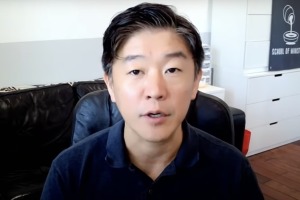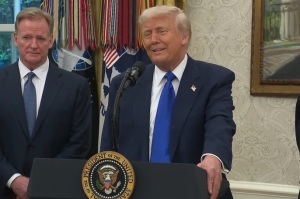Obama Most Conservative Democratic President Since WWII?
Many pundits, both liberal and conservative, have claimed that President Barack Obama's inauguration speech indicated a more liberal direction for the president's second term. If true, this would be a significant shift because, by at least one measure, Obama is the most conservative Democratic president in the post-World War II period.
Two University of Georgia political science professors, Keith Poole and Christopher Hare, have examined the positions on congressional legislation of every president since Franklin Delano Roosevelt and scored the positions on a liberal to conservative scale. Based upon this data, Obama is closest to the center of all six of the Democratic presidents who followed Roosevelt.
Obama is slightly more centrist than Lyndon B. Johnson and Harry Truman, and much more centrist than Jimmy Carter, John F. Kennedy and Bill Clinton. Placed in order from most liberal to least liberal, those six presidents would be ranked like this: Carter, Kennedy, Clinton, Truman, Johnson, Obama.
Among members of the previous Congress, Obama is ideologically closest to Rep. Jim Moran (D-Va.), and Senators Bob Casey (D-Pa.), Kent Conrad (D-N.D.), Jeanne Shaheen (D-N.H.) and the recently deceased Daniel Inouye (D-Hawaii).
The results likely seem surprising, Poole and Hare noted on their blog, Voteview.com, because Obama is considered by many to be one of the most, or even the most, liberal president in modern history. They point out, though, that Obama has been conservative on many national security and foreign policy issues, such as extending The Foreign Intelligence Surveillance Act (which he opposed as a senator). Since Poole and Hare only score the votes that Obama takes a public position on, and Obama takes a position on many foreign policy issues, foreign policy issues make up a large portion of his score.
Hare and Poole also point out that "personal or symbolic factors" are not included in the scores.
The "scores are estimated only from roll call voting records, and so perceptions of President Obama – for instance – that he is a polarizing president or is aloof towards Republicans are not considered (though, of course, because congressional Republicans have become increasingly conservative, a wide policy distance from them does not necessitate strident liberalism)," they wrote.
Hare and Poole also point out that other methods of scoring the ideology of presidents may show different results. For instance, they point out research by Adam Bonica, assistant professor of political science at New York University, showing that Obama's donor base would show him to be more liberal than their ranking.
Placed in order from least conservative to most conservative, Hare and Poole's scores of modern Republican presidents would look like this: Dwight Eisenhower, Gerald Ford, Richard Nixon, George H. W. Bush, Ronald Reagan, George W. Bush.





























